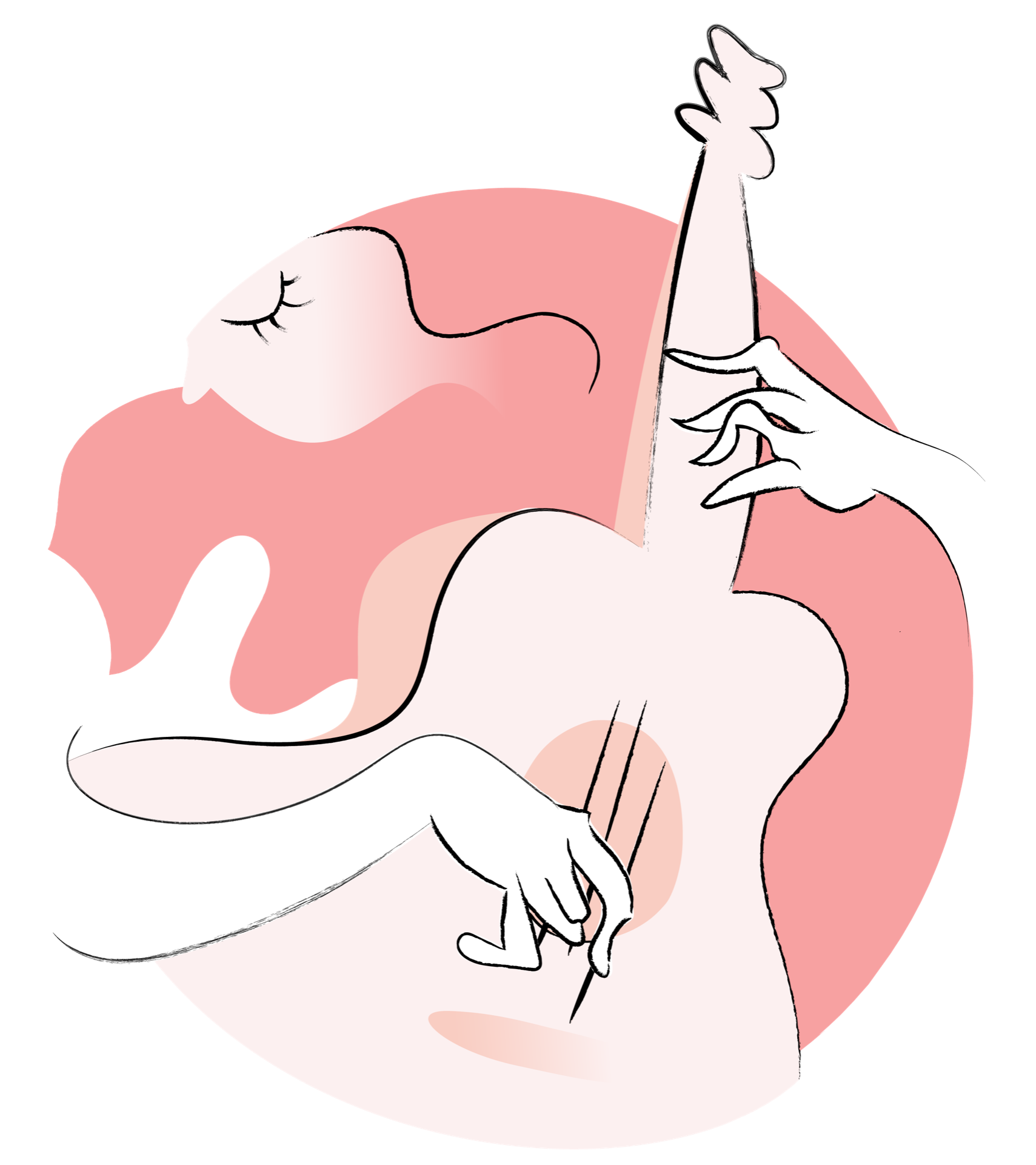To the Edge of Dream (1983)
Toru Takemitsu (1930-1996)
“In this music, the interval of a fifth plays an important role and melodic fragments float in transparent space like so many splinters of dreams. This is an homage to the Belgian visionary painter Paul Delvaux – these sounds winging their way towards the boundary between night and day that is our dreams.”
Toru Takemitsu
Toru Takemitsu
In this work, which is originally written for guitar and orchestra, Takemitsu unites his preoccupation with dreams and surrealism, a style in which the artist believed that the rational mind repressed the power of imagination. In Delvaux’ paintings in particular we find a creation of new worlds infused with a strong sense of nostalgia, alienation, and a feeling of sadness for the loss of childlike imaginative freedom.
The piece is composed as if fragments were thrown together somewhat unstructured, as in dreams. In moments it feels like a perfect dream which is rapidly disturbed by hints of something darker. The orchestral version carries out a very appropriate, almost enigmatic ‘nocturnal’ ambience.
But what is it that we find towards the edge of our dreams? After all, not everything is what it seems…
The piece is composed as if fragments were thrown together somewhat unstructured, as in dreams. In moments it feels like a perfect dream which is rapidly disturbed by hints of something darker. The orchestral version carries out a very appropriate, almost enigmatic ‘nocturnal’ ambience.
But what is it that we find towards the edge of our dreams? After all, not everything is what it seems…
Nocturnal after John Dowland, Op. 70 (1964)
Benjamin Britten (1913-1976)
In the end, the night doesn't appear as peaceful as it looked like, before we find rest again...
*I. Musingly - II. Very agitated - III. Restless - IV. Uneasy - V. March-like - VI. Dreaming - VII. Gently rocking - VIII. Passacaglia - Slow and quiet
John Dowland
Come, heavy Sleep,
the image of true Death,
And close up these my weary weeping eyes,
Whose spring of tears doth stop my vital breath,
And tears my heart with Sorrow's sigh-swoll'n cries.
Come and possess my tired thought-worn soul,
That living dies, till thou on me be stole.
Come, heavy Sleep,
the image of true Death,
And close up these my weary weeping eyes,
Whose spring of tears doth stop my vital breath,
And tears my heart with Sorrow's sigh-swoll'n cries.
Come and possess my tired thought-worn soul,
That living dies, till thou on me be stole.
Ciaccona (1720)
Partita II for Violin Solo BWV 1004
Johann Sebastian Bach (1685-1750)
"The Chaconne is for me one of the most wonderful, incomprehensible pieces of music. On a single staff, for a small instrument, the man writes a whole world of the deepest thoughts and the most powerful feelings. If I were to imagine how I might have made, conceived the piece, I know for certain that the overwhelming excitement and awe would have driven me mad."
Johannes Brahms
The Chaconne is a monumental piece in music history. It's the longest and one of the most impressive pieces for a solo instrument. The piece is written as a tombeau for the passing of his first wife Maria Barbara Bach who passed away in Köthen in 1720.Johannes Brahms
It's the musical translation of the death, as I see the piece, with all its raw and profound emotions that come with it: tearing grief, immeasurable pain, disbelief and anger, but with little rays of hope and nostalgia that helps us remember what once was.
To the Evening Star (2001)
Lucien Posman (°1952)
Here, we find the hopeful belief that stars have the ability to turn a dark night again into a calm and a dreamy one...
William Blake
Thou fair-hair'd angel of the evening,
Now, whilst the sun rests on the mountains, light
Thy bright torch of love; thy radiant crown
Put on, and smile upon our evening bed!
Smile on our loves, and while thou drawest the
Blue curtains of the sky, scatter thy silver dew
on every flower that shuts its sweet eyes
In timely sleep. Let thy west wind sleep on
The lake; speak silence with thy glimmering eyes,
And wash the dusk with silver. Soon, full soon,
Dost thou withdraw; then the wolf rages wide,
And then the lion glares through the dun forest:
The fleeces of our flocks are cover'd with
Thy sacred dew: protect them with thine influence!
Thou fair-hair'd angel of the evening,
Now, whilst the sun rests on the mountains, light
Thy bright torch of love; thy radiant crown
Put on, and smile upon our evening bed!
Smile on our loves, and while thou drawest the
Blue curtains of the sky, scatter thy silver dew
on every flower that shuts its sweet eyes
In timely sleep. Let thy west wind sleep on
The lake; speak silence with thy glimmering eyes,
And wash the dusk with silver. Soon, full soon,
Dost thou withdraw; then the wolf rages wide,
And then the lion glares through the dun forest:
The fleeces of our flocks are cover'd with
Thy sacred dew: protect them with thine influence!
